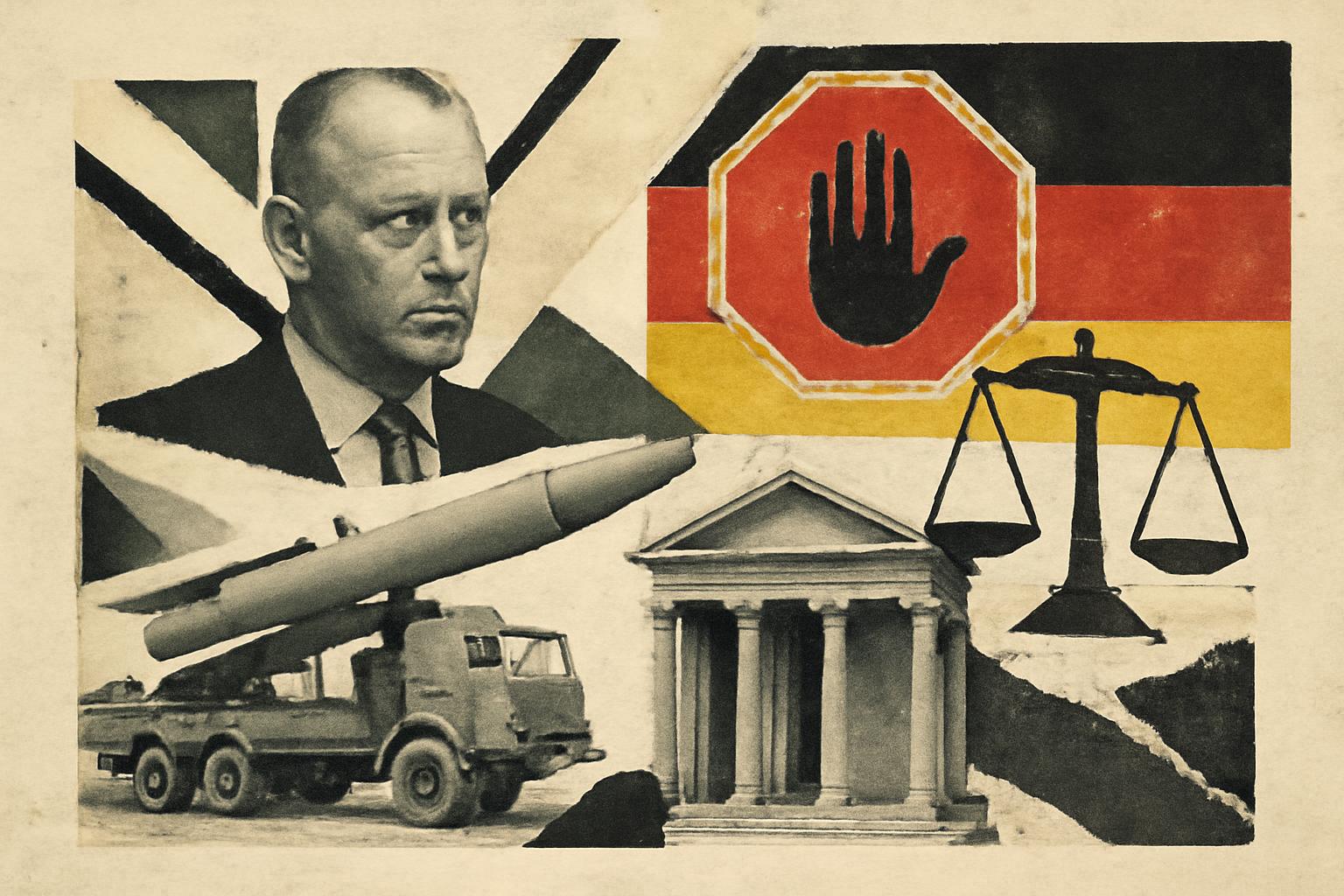Merz pulled back on part of Germany’s weapons exports to Israel, paused his vacation, and explained it in a TV interview. Reactions split along party lines: Bas warned against turning Israel into a betrayer by a harsh label, but urged that Germany must keep Israel secure while not forgetting Gaza’s civilians; she pressed the CDU/CSU to improve messaging so the public feud doesn’t undermine the bloc. Within the Union, some backed Merz—Kretschmer emphasized solidarity with Israel and its defense, but cautioned that proportionality matters and warned against an escalatory step that could follow from a broader plan to take Gaza. Röttgen called the move timely, appropriate, and legally sound, while also saying Israel must address the humanitarian catastrophe. The AfD praised the partial embargo, though Chrupalla attacked Merz for not uniting his government and party with sufficient resolve. Netanyahu blamed public pressure for Merz’s stance, while Merz insisted the decision was driven by cabinet deliberations and expert advice, not by polling. Berlin had already halted arms exports to Israel for use in Gaza as of August 8.
From a libertarian vantage, this is theater built on the coercive spine of the state. Hayek warned that central planners cannot possibly know enough to steer complex social orders; the moment a government claims expertise to regulate exports, it replaces the spontaneous order of voluntary exchange with political calculation. In this framework, export licenses and embargoes are not neutral instruments; they are coercive tools that pick winners and losers in ways no market discipline could justify. They distort prices, shovel resources toward cronies and favored constituencies, and subsidize political priorities that may be misaligned with actual rights-protecting defense of life, liberty, and property.
Nozick would remind us that the only legitimate state is one whose power is limited to protecting individuals from aggression, theft, and fraud. The moment the state licenses or blocks trade in weapons across borders, it steps beyond the protection of rights and into rights-violating redistribution of bargaining power. Export controls imposed by the state are a form of coercive interference with private contracts and property—an infringement on the voluntary exchanges through which peaceful people can defend themselves, acquire goods, or trade for defense services if they choose. The public optics of humanitarian concern do not authorize this expansion of coercive power; they merely cloak it in moral receipts that, in truth, justify greater state meddling.
Rand would strip away the moral fog. A government that defends “humanitarian” aims by commanding who may sell to whom is not a defender of human life but a master of men. Rights are not granted by political majorities or humanitarian sermons; they are the holds of the individual against coercion. When politicians claim to act for civilians’ safety while blocking legitimate trades, they treat people as means to political ends, not as ends in themselves. The morality of freedom rejects this condescending, permission-based governance and demands a society where voluntary exchange governs defense-related activity as far as the market can sustain it, with private institutions, charities, and civil society stepping in to help those harmed by violence—without forcing others to subsidize or participate in it via state budgets or export controls.
The libertarian impulse is simple and radical: end these arms-export controls entirely, or at minimum strip the state of power to regulate such exchanges. Let private actors—manufacturers, buyers, insurers, and security providers—voluntarily contract for defense services and goods, untainted by political unos and export licenses. Reduce foreign entanglements, shrink the vocabulary of “national interest” to the protection of individual rights, and rely on open, competitive markets to allocate resources and respond to humanitarian needs through voluntary philanthropy rather than coercive taxation and regulation. If a government exists at all, its legitimate function is to restrain violence, not to engineer moral outcomes through coercive trade policy.
